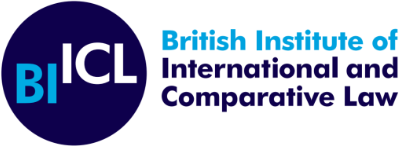
2. Procedures and Evidence
D. Sources of Evidence
4. COMPELLING SOURCES OF EVIDENCE RELATED TO CAUSATION
An analysis of these 17 jurisdictions unveils a global legal landscape where scientific evidence, expert testimony, and internal company reports play crucial roles in overcoming the challenges of proving causation in corporate climate litigation.
Scientific Reports and Climate Science
Key aspects of climate science relevant to corporate climate litigation include the use of authoritative scientific reports, such as those from the Intergovernmental Panel on Climate Change (IPCC), the recognition of Scope 3 emissions, and the significance of single projects and cumulative assessments.
Scientific Reports and Studies
Scientific reports are widely accepted as key evidence in the 17 legal jurisdictions studied.
- Countries such as Australia (Sharma case), China, Italy, Japan, the Netherlands, Norway, the Philippines, and the UK utilise IPCC reports to reinforce the recognition of climate science in their courts, establishing a link between corporate actions and the global climate crisis.
- Moreover, international environmental reports, such as the Annual Reports of the United Nations Environment Program (UNEP) on the Emission Gap and the Carbon Disclosure Project, cited in courts in Germany, provide critical data on the discrepancy between current carbon emissions and the necessary reductions to achieve global climate targets.
The use of scientific studies to establish causation in corporate climate litigation is on the rise. However, it is still uncertain if the factual "responsibility" identified in these studies can be converted into legal "responsibility," especially in the context of tort law.
- In the United States, the reliance on climate attribution science has grown, illustrated by the transition from first-wave to second-wave litigation [1]. Richard Heede's study in 2013 on the historical emissions from major fossil fuel and cement producers marked a significant advance in attributing climate change to specific entities, showing that 90 such entities were responsible for 63% of industrial emissions of carbon dioxide and methane from 1854 to 2010. Follow-up studies, such as that by Ekwurzel et al., have further traced these corporations' contributions to global temperature increases, aiding in bridging the causation gap in climate litigation.
- Similarly, the cornerstone of the petitioners' evidence in the National Inquiry on Climate Change of the Philippine Commission on Human Rights was Richard Heede's peer-reviewed publications.
Recognition of Scope 3 Emissions and Significance of Single Projects and Cumulative Assessments
In Australia, there is a recognition of "Scope 3" emissions, which are indirect emissions within a company's value chain, and the importance of considering both single projects and cumulative environmental impacts in legal assessments.
Scope 3 emissions include upstream and downstream emissions, i.e., those associated with the production of purchased materials, transportation of purchased goods, and use of sold products and services. Traditionally, these indirect emissions were less frequently accounted for in legal assessments of a company's environmental impact. However, over time courts in Australia have begun to acknowledge the significance of Scope 3 emissions in understanding the full environmental footprint of corporate activities.[2] Recognizing these emissions helps to illustrate how even activities not directly controlled by a company can significantly contribute to its overall impact on climate change.
Moreover, the legal perspective is evolving in Australia to acknowledge that single projects can have significant environmental impacts, particularly when their effects are considered in conjunction with other projects and sources of emissions. This shift towards a cumulative assessment marks a departure from evaluating projects in isolation, fostering a more holistic view of how corporate actions contribute to broader climate change trends.
Expert Testimony and Environmental Research Institutes
Expert testimony and environmental research institutes play crucial roles in providing specialised knowledge on the impacts of climate change.
In China, corporate climate litigation emphasises the use of expert assessments, especially in cases involving the accounting of carbon credits, evaluation of ecological environmental damages, and calculation of compensation. Of the 11 cases issued by the Supreme People's Court, 4 explicitly reference the expert assessment agencies and their findings. For instance, in the Shenzhen Xiangfeng administrative punishment case, the Shenzhen Huantong Certification Center LLC (Universal Certification Centre Co., Ltd.)[3] was commissioned by the plaintiff to audit its 2014 greenhouse gas emissions. The department's report regarding carbon emissions from emission trading institutions in Shenzhen served as evidence in the trial.
- In India, expert committees such as the National Environmental Engineering Research Institute (NEERI) are used to understand and analyse the environmental impacts of projects.
- Japan's Meteorological Agency's Reports on Climate Change are utilised alongside IPCC reports to establish the causal relationship between CO2 emissions and climate change.
- The 2020 Report of the Euro-Mediterranean Centre on Climate Change (CMCC), the Italian focal point of the IPCC, focuses on climate change impacts specific to Italy, and is used to underscore the climate risks and damages at a national level.
- In Nigeria, cases such as Shell v. Otoko highlight the courts' scepticism towards evidence that does not conclusively demonstrate causation. This underscores the need for litigants to present expert testimonies grounded in thorough scientific analysis and relevant to the specific scientific issues at hand, as illustrated by the Ogiale v. Shell case.
- In Norway, expert submissions provided by international associations (i.e., Environmental Law Alliance Worldwide, the Allard K. Lowenstein International Human Rights Clinic, and the Center for International Environmental Law) have been crucial in cases such as People v Arctic Oil, where they supported claims about the causal link between oil extraction, production, and climate change. However, establishing a "direct" link between specific adverse effects of climate change and the actions of corporations remains a challenge. Claimants have not provided evidence of such "direct" link, and courts have yet to exercise their right to request additional evidence actively.
Environmental Impact Statements and Internal Corporate Sustainability Reports
Rulings in jurisdictions such as India, Japan, the Netherlands, and the Philippines reference defendants' environmental impact statements and corporate sustainability reports, demonstrating the role of internal corporate documentation and company's awareness and management of its environmental impact in assessing corporate responsibility for climate change. France's litigation includes cases like the La Mède refinery case, also highlighting environmental impact assessments.
[1] See the USA National Report.
[2] Justine Bell-James and Sean Ryan, 'Climate Change Litigation in Queensland: A Case Study in Incrementalism' (2016) 33 Environmental and Planning Law Journal 515, 515.
[3] The English name of the centre is "Universal Certification Centre Co., Ltd", while Shenzhen Huantong is a direct translation of Chinese. It is a private company - as the controlling shareholder is a Natural Person - but transformed from a State-owned, public organ. In 1993, the centre was established in Shenzhen, named Shenzhen Quality Certification Center (SQCC), which directly belongs to the Shenzhen Municipal Bureau of Quality and Technical Supervision. In December 2000, SQCC registered and established Universal Certification Service Co., Ltd. (UCC). As a third-party certification body, the centre provides customers with value-added certification services. It is authorised to conduct various management system certifications such as ISO9001 (Quality Management System) and ISO14001 (Environmental Management System). Certificates issued by UCC are mutually recognised in more than 30 countries, including the United States, Germany, France, Britain, Canada, Japan, Australia, and Korea.
